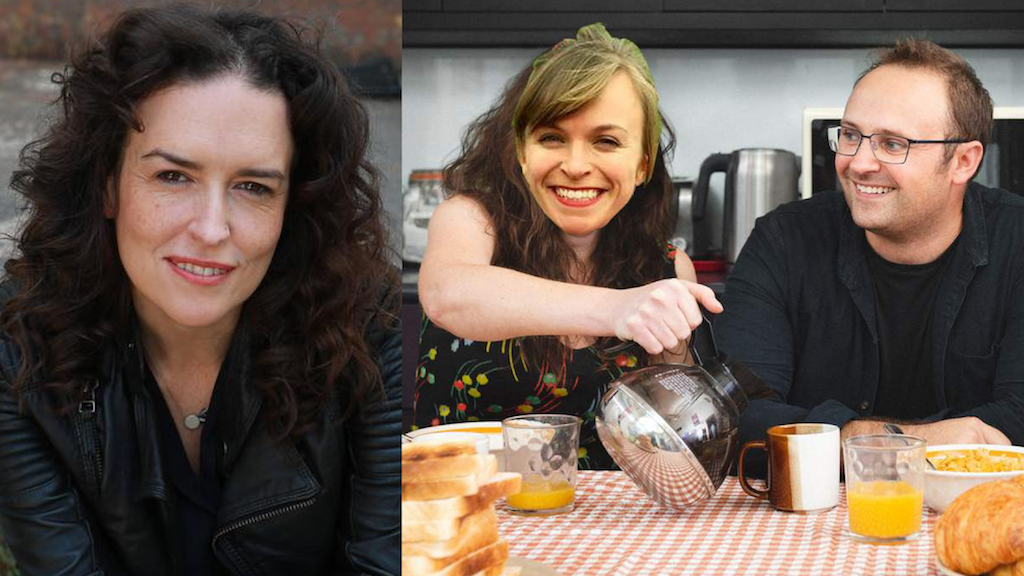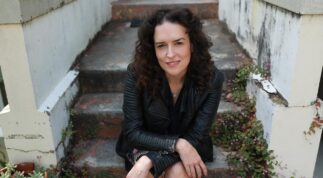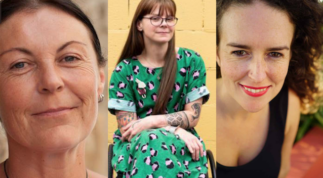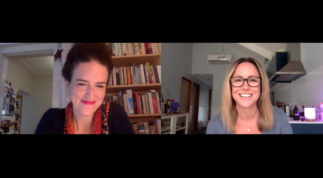On Feb 11 & 18 2021, Jess Hill will be moderating Love, Power & Control, a webinar series on coercive control, presented by the Victorian Women’s Trust. Part One: Perspectives from the UK, looks at what has changed since coercive control was made illegal in the UK in 2015, and Part Two digs deep into the Australia context. Book tickets here.
In anticipation of these virtual events, Jess spoke with the hosts of Triple RRR Breakfasters, Monique Sebire and Daniel Burt on Thursday 28 Feb. They discussed her award winning book, See What You Made Me Do: Domestic Abuse, Power and Control, and what coercive control actually looks like in an intimate relationship.
Listen back to the interview or read the full transcript of their conversation below:
Monique Sebire (3RRR)
So, the Victorian Women’s Trust has a 30 year tradition of progressive philanthropy and are one of the oldest women’s funds in the world. Next month, they are doing a very exciting web event series titled Love, Power & Control and hosting those web events is investigative journalist and author of See What You Made Me Do, and winner of the 2020 Stella Prize and two weekly Walkley Awards and an Amnesty International award and a three Our Watch Awards is the very, very talented, Jess Hill. Hi Jess.
Jess Hill
Hi, morning, so it’s embarrassing hearing all of that [crosstalk]
Daniel Burt (3RRR)
They are serious credentials.
Monique Sebire (3RRR)
I do it deliberately. [laughs] Just before we get into the events themselves, I just run the listeners who are maybe not familiar with the book — I mean it’s one of the bestsellers that we’ve had at the bookstore — but for those who are not familiar with ‘See What You Made Me Do’, can you tell us a bit about what what the book is is focused on?
Jess Hill
Yeah, well ‘focused on’ is it is probably not the word to describe it, because it’s, it’s so broad. I set out to really write a book that charted the entire phenomenon of domestic abuse. From what looked and felt like, both from the side of the victim-survivor and from the perpetrator, and for any kids. And, and then also how the system responded to it. So, everything from police to the criminal courts, with a pretty big focus on the Family Law Courts. And then, what, what is being done around the world to fix this? So that’s how it goes…it’s it’s a long and pretty intense read, but I think if anything what I focused on, in terms of the actual writing of it was, how do we make this compelling and fascinating? Instead of it just being “worthy” and something that people should read about? I wanted to make people feel like, in order to understand our society and humanity in the 21st century, I need to understand the phenomenon of domestic abuse because it is so central to all of our lives, whether we know it or not.
Monique Sebire (3RRR)
Oh, absolutely. And the event itself is focusing, it’s kind of prompted by the fact that in 2015 coercive control was criminalised in England, Wales and Scotland. And this series is going to kind of reflecting on what would happen if Australia was to follow suit. Can you kind of give a provider definition of what actually is coercive control? I think there might be some listeners who who may not be familiar with that general terminology.
Jess Hill
Yeah, sure. So I mean, I think the reason, coercive control is is a new term to a lot of people’s ears, even though it’s not new to the domestic violence sector, is that we’ve kind of in the last few years we’ve done really well at expanding our definition of domestic violence or domestic abuse beyond just physical. So we started sort of saying it’s also financial abuse, it can be spiritual, it’s psychological and emotional. But I think what we’ve only just began to describe is that more often than not the abuse in these intimate relationships is following this plot line that’s so predictable, you can basically finish a woman’s story before she’s halfway through telling you, or you can say, ‘this happened to you, this happened to you and then was it like this and then did this happen?’ And so often they just filling in the blanks to you. Every relationship is obviously unique and coercive control is bespoke to each person and each circumstance, but essentially what coercive control is is like a model for understanding what that typical plot line looks like.
Jess Hill
So, typically, you have a situation in which there is trust and intimacy established, then the person is isolated, either physically or psychologically from supportive connections. Then they are sort of led to believe that either they need to fix themselves or fix the person who is controlling them, so that it stops them thinking about what’s happening to them, but what they need to do. So it diverts their attention from the abuse that’s being perpetrated against them. And then there’s various techniques of inducing durability and exhaustion, training them into compliance by enforcing arbitrary demands, constantly breaching their boundaries, so sort of pushing further and further into places that feel shameful, so they start to feel complicit in it, as though they are shameful and made it but they almost maybe deserve what’s happening. And then, degradation threats, intimidation.
Jess Hill
But also really central to coercive control — not every single relationship but most — is the alternation between compassion, even, even periods, like love, and, and, and punishment, so sort of alternating where we start to feel grateful for the leniency. And then, and then an environment of building tension and punishment. So it’s all about sort of there being consequences, and you’re just living in your normal everyday life. And I think what’s really important to note about coercive control is that this is a system of abuse that doesn’t just exist in intimate relationships, but in various other systems that the captivity like cults, kidnappers employ it, and essentially what we’re talking about is not just a system of abuse, but a system of entrapment.
Daniel Burt (3RRR)
I think Jess, probably in my lived experience, now y’know I’ve familiarised myself with the concept of coercive control. I can think of, probably at least half a dozen relationships that I’ve come across, or witnessed where, yeah, there was definitely coercive control happening their relationship. Do we have any sort of idea of how prevalent control is across the community?
Jess Hill
Yeah, it’s really interesting you say that because, just before I said before that, when you thought about domestic violence, could you think of many people that you knew who had been through that?
Daniel Burt (3RRR)
Through coercive control through domestic violence?
Jess Hill
It’s like physical..
Daniel Burt (3RRR)
Yeah, absolutely, I think of quite a few, actually.
Jess Hill
So, what we’re looking at… So in the community, generally, when we, when we survey on violence from an initmate partner, you look at one in four women from the age of 16. But so as far as what coercive control is as a percentage of that it’s very hard to measure, but in studies that are looking at about 60 to 80% of women who seek help. And I think the domestic violence sector, probably like many in that sector would say that, actually they don’t really see people who aren’t going through some kind of coercive control. So [coercive control] for them, is a byword for domestic violence. But I would say that people, even just because there’s violence in the relationship, does not necessarily mean it’s a system of entrapment and of, like, overarching, what I’d say, like power over… they can be sort of reactive violence. Violence that comes from overreacting to a fight or etc. But what we’re talking about is a very particular system in which someone starts to really almost lose the sense of who they are. And it’s just a system of oppression, essentially.
Monique Sebire (3RRR)
Yeah, absolutely. For listeners who have just tuned in, we are speaking with Jess Hill who is hosting an amazing event series, held through the Victorian Women’s Trust called Love, Power & Control. I just want to make mention that there are lots of support services. You can contact 1800 RESPECT which is 1-800-737-7328 Lifeline 131114. And you can also visit the Victoria Women’s Trust for a list of support services at www.vwt.org.au.
I just like to give a personal shout out for the Women’s Legal Service, they were really helpful for me personally. They’re not for profit organisation that has been providing free legal services to women since 1982.
The event, Love, Power & Control is the first part is going to be held on Thursday, February 11 at 7pm AEDT. And the second part is on February 18. For tickets and to book, head to www.vwt.org.au. Thank you so much Jess.
Jess Hill
My pleasure. Thanks for having me.
If this topic raises any issues for you, contact:
- 1800 RESPECT 1800 737 732
- Lifeline 13 11 14
- For more information, visit our list of support services.



